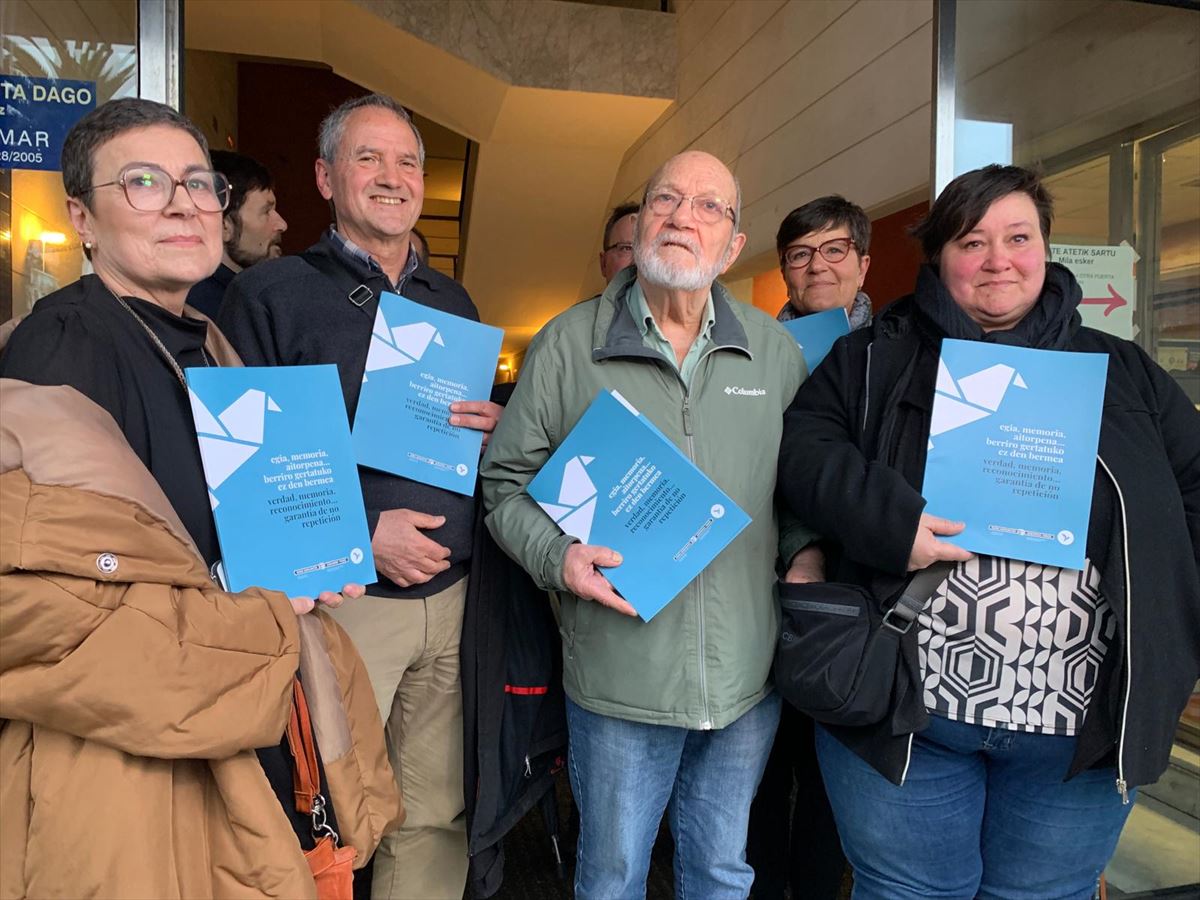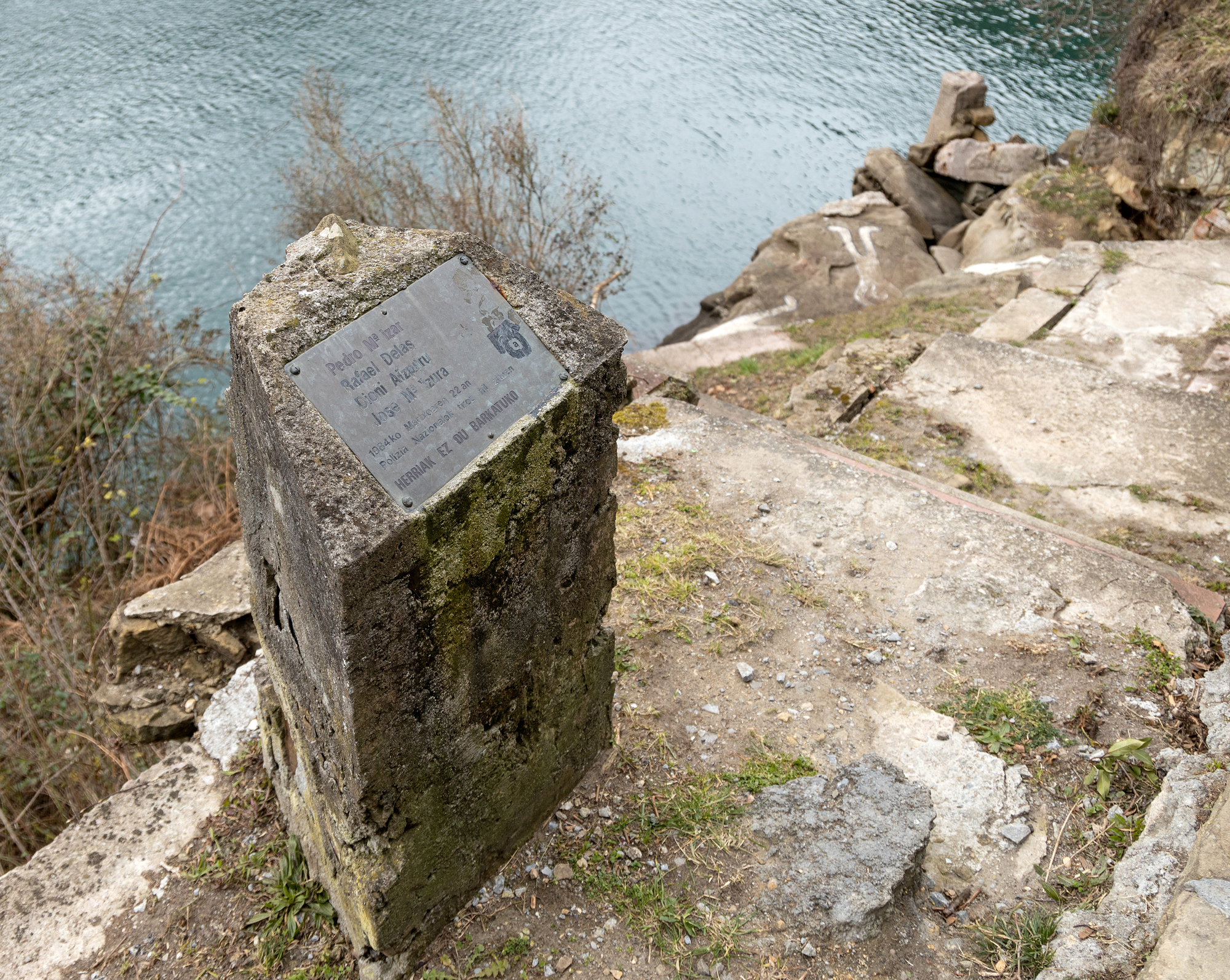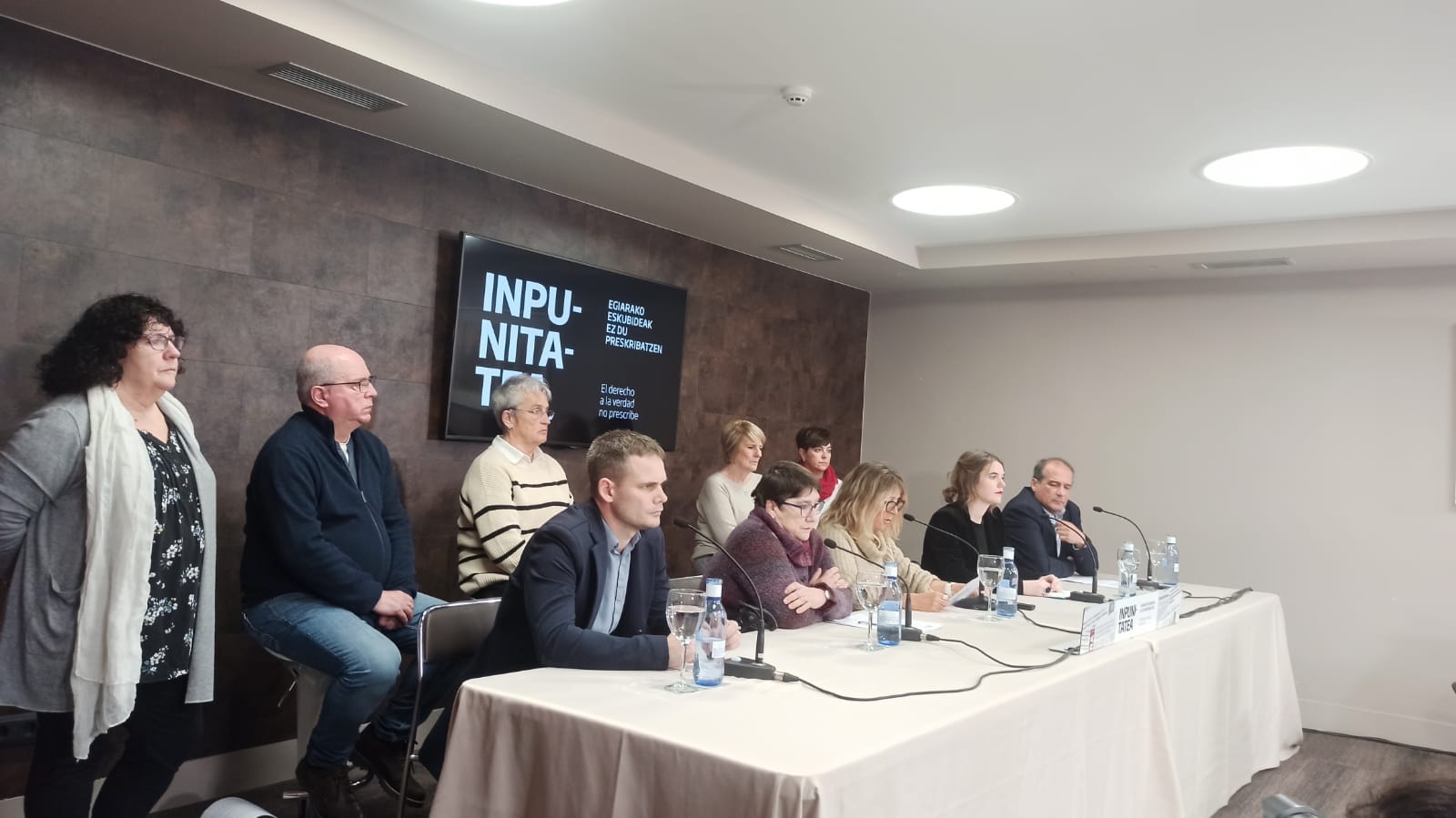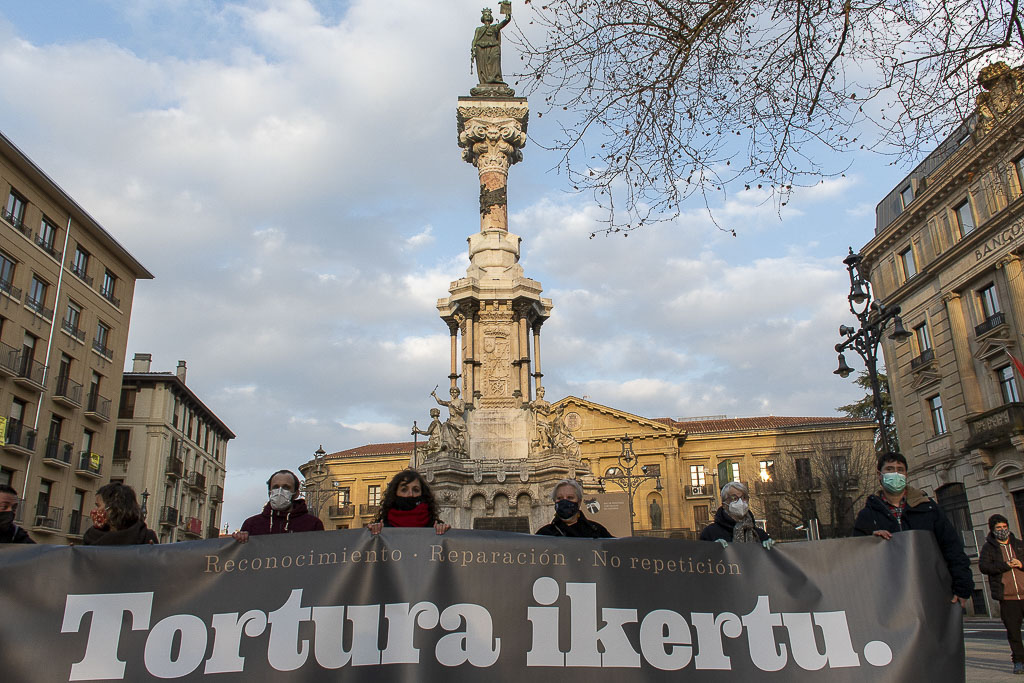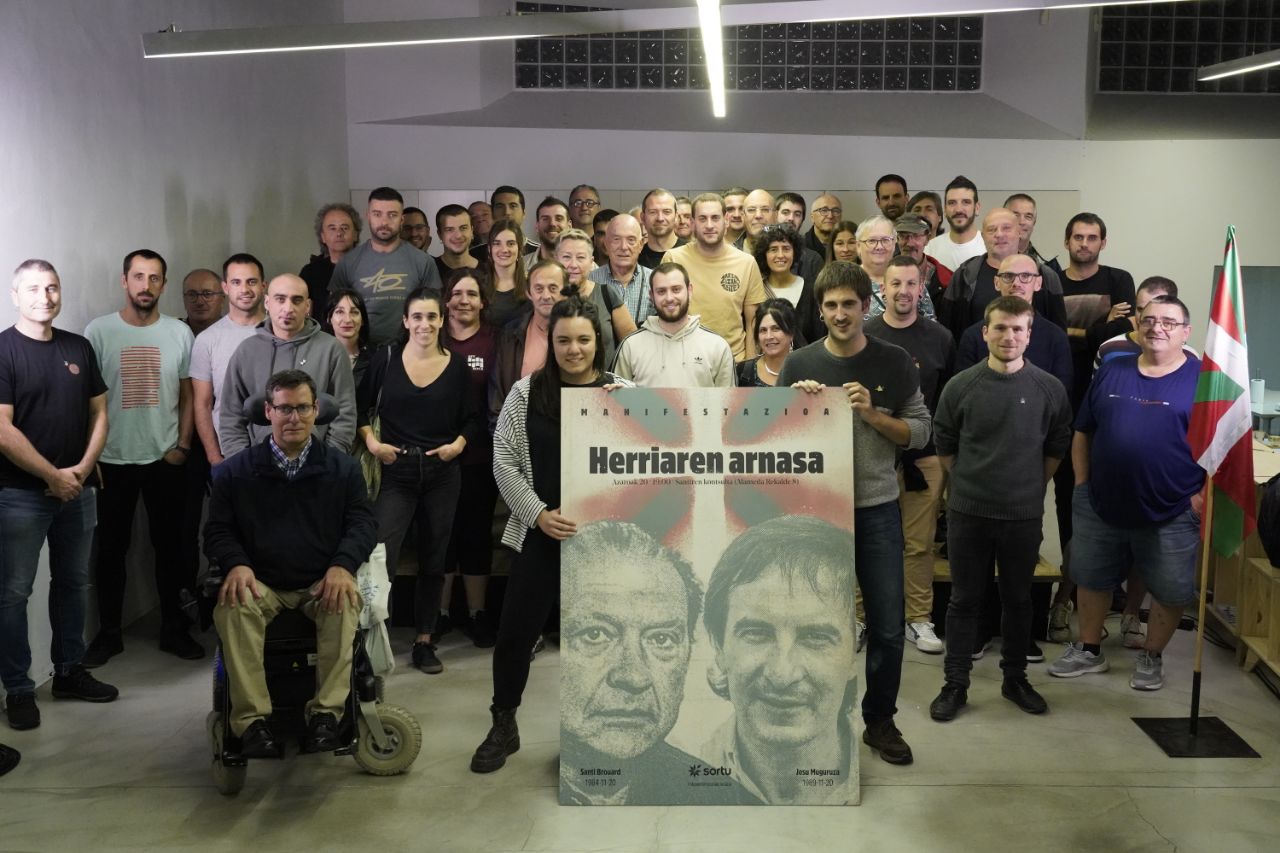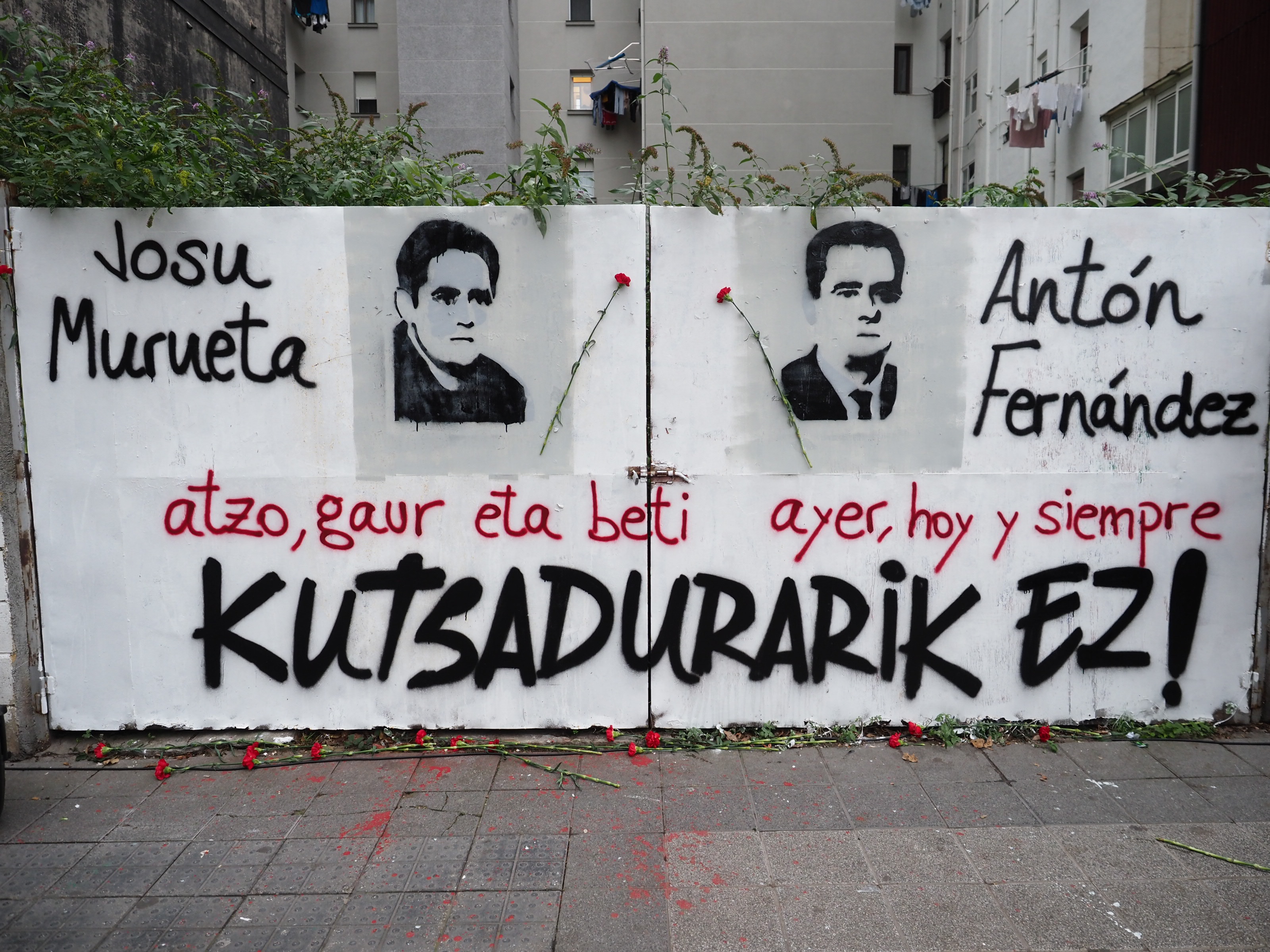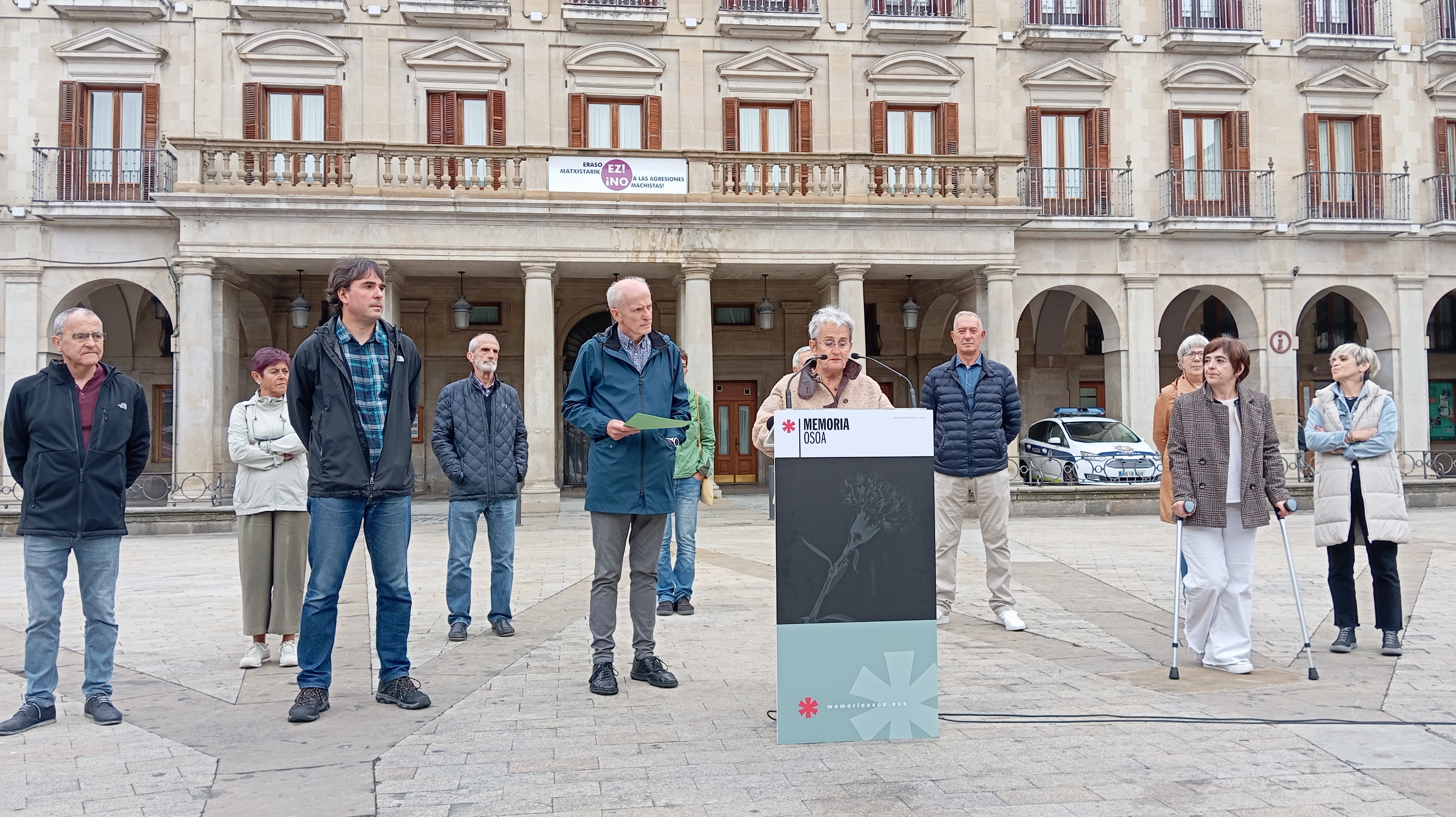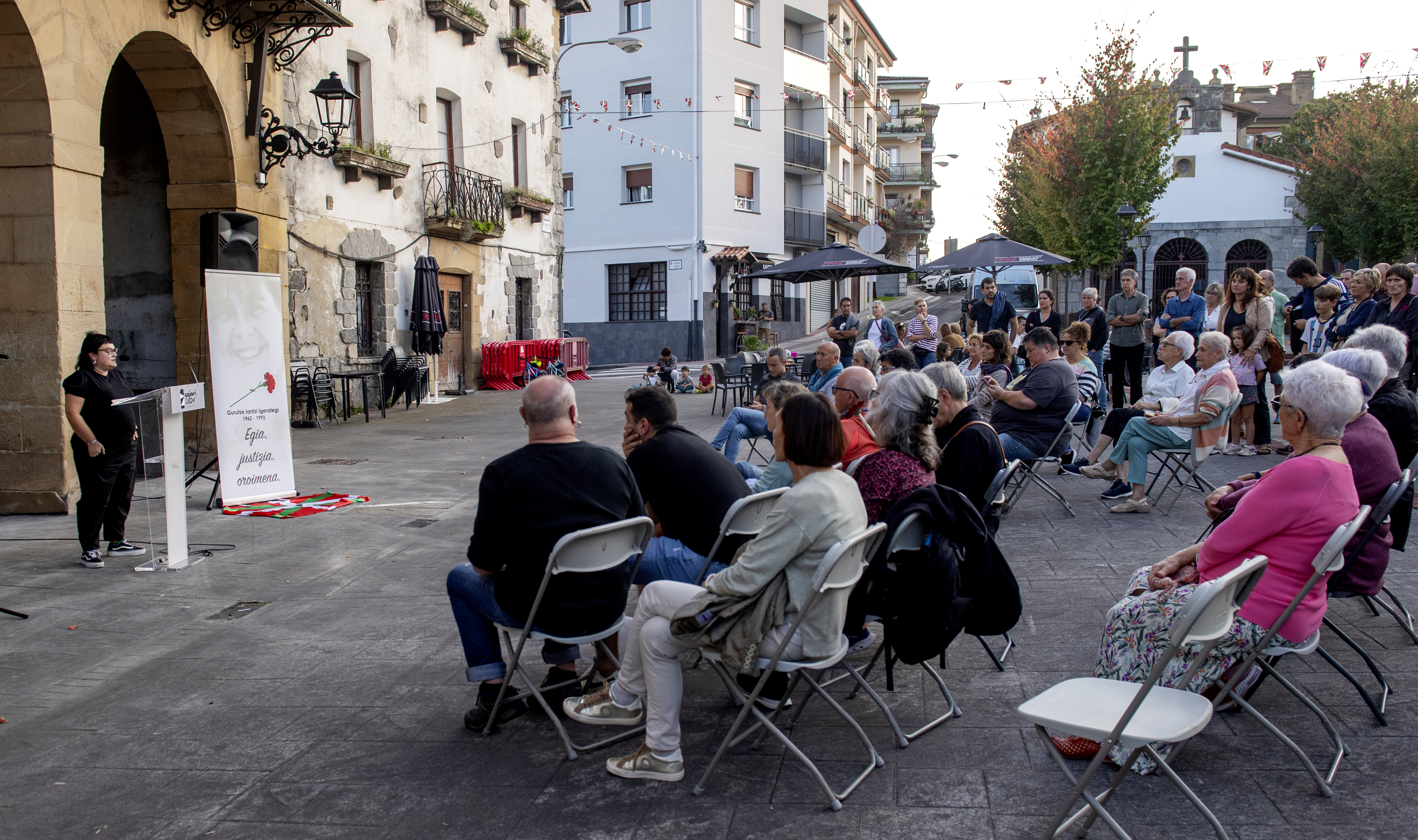They recall Councilor Mikel Arrangi, killed by the Civil Guard on the 40th anniversary of his assassination in Lakuntza
- On 11 November, on the occasion of the 40th anniversary of the death of Mikel Arrangi, an institutional event was held at the City Hall of Lakuntza. The President of Navarre was invited to the event and several representatives of the government, but they did not attend. Yes, on the other hand, some parliamentarians from EH Bildu, Geroa Bai and Navarra+.

On 11 November, 40 years have passed since the assassination of Mikel Arrangi Marín. He was 33 years old and a member of Herri Batasuna and a councillor of this town hall representing a popular candidacy in the City Hall of Lakuntza (Bizkaia).
He died in Etxarri Aranatz as a result of the shooting of Civil Guard agents in the early morning of 11 November 1979. The deceased was in a car in the direction of Alsasua, along with other people, after removing control of the road.
The official note that the Civil Guard Command made public at first stated that "control had been overcome" in this regard. The occupants of the car, however, did not see any kind of control, no sign, nor received any stopping signal from the authors of the shots.
A few days after the event, a Committee of Inquiry was set up. There, family members, co-workers and eyewitnesses, the majority of Etxarri Aranatz's neighbors, declared that there was no control whatsoever and that reflective mangroves were not being used. The driver of an ambulance who was travelling on the scene by chance also took care of the wounded and testified, thus guaranteeing the version of the facts.
Of all these statements, there was a comprehensive report that was presented to the judge to open an investigation of the facts, in relation to a petition to the Government of Spain: to correct the previous statements and to make the judgment immediately.
Finally, Blanca Burusco (Head of Victim Care Service), José María González (Head of Coexistence and Human Rights Service), Bakartxo Ruiz and Adolfo Araiz (EH Bildu), Jon Arakama (Geroa Bai), Iñaki Iriarte (Navarra +), 1979.
The act was very simple. It mentioned that after analysing the trial for the assassination of Mikel Arrangi in September 1981, the Committee of Inquiry was given the right, giving credibility to the version that there was no control when the vehicle in which Mikel Arrangi travelled was passing through the scene. The evidence and testimonies presented were able to cancel the official version, so a Civil Guard officer was sentenced to two months in prison and paid the family a sum of money. This judgment, in the opinion of the social majority, did not adjust to the magnitude of the facts, which were understood as "symbolic sentences", considering what happened "an error without intentionality".
In those convulsive moments, the peoples of Lakuntza and Etxarri Aranatz wanted the memory of Mikel Arrangi and what happened to remain in time. They therefore decided that a monolith should be placed in the place of the facts. A work by the famous sculptor of Bakaiku, José Ramón Anda, cast and performed by his colleagues in the foundry. It was inaugurated in 1980, and has since suffered several attacks, the last one a few months ago.
The City of Lakuntza wanted to keep alive the memory and memory of Mikel Arrangi. He also condemned the continued attacks on the monolith's memory, "because they attack his memory and the right of the citizens to live a normalized and peaceful coexistence," said the mayor of Lakuntza.
The mayor of the town showed the will of the City of Lakuntza to "advance in the right to truth, justice, recognition and reparation" of all victims of political motivation "as a guarantee that violent events will not be repeated".
Azken astean ezagutarazi moduan, Eusko Jaurlaritzaren Balorazio Batzordeak txosten banatan aitortu ditu estatuaren biktima gisa. Justizia sailburuak ekitaldi pribatu banatan entregatu dizkie dokumentuak.
Espainiako Poliziak duela 41 urte hil zituen tiroka Dionisio Aizpuru, Pedro Mari Isart, Jose Mari Izura eta Rafael Delas gazteak, Komando Autonomo Antikapitalistetako kideak.
GALeko biktima talde batek eman du kereilaren nondik norakoen berri Bilbon egindako prentsaurrekoan, Egiari Zor fundazioak eta Giza Eskubideen Euskal Herriko Behatokiak lagunduta. GALen aurkako eta, zehazki, José Barrionuevoren aurkako kereila aurkeztuko dute.
Nafarroako Gobernuak ofizialki aitortu ditu gure lurraldean giza eskubideen urraketa larriak jasan zituzten Estatuaren indarkeriaren beste zazpi biktima. Horien artean, hitzez hitz “motibazio politikoko biktima gisa” aitortzen ditu Patxi Erdozain, Eneko Compains,... [+]
2008an Fernando Grande Marlaska epailearen aginduz atxilotu zutenean Ibai Azkonak pairatu zituen torturak aitortu ditu Nafarroako Gobernuak. Euskalerria Irratian, pauso honek suposatzen duena azaldu du Azkonak.









